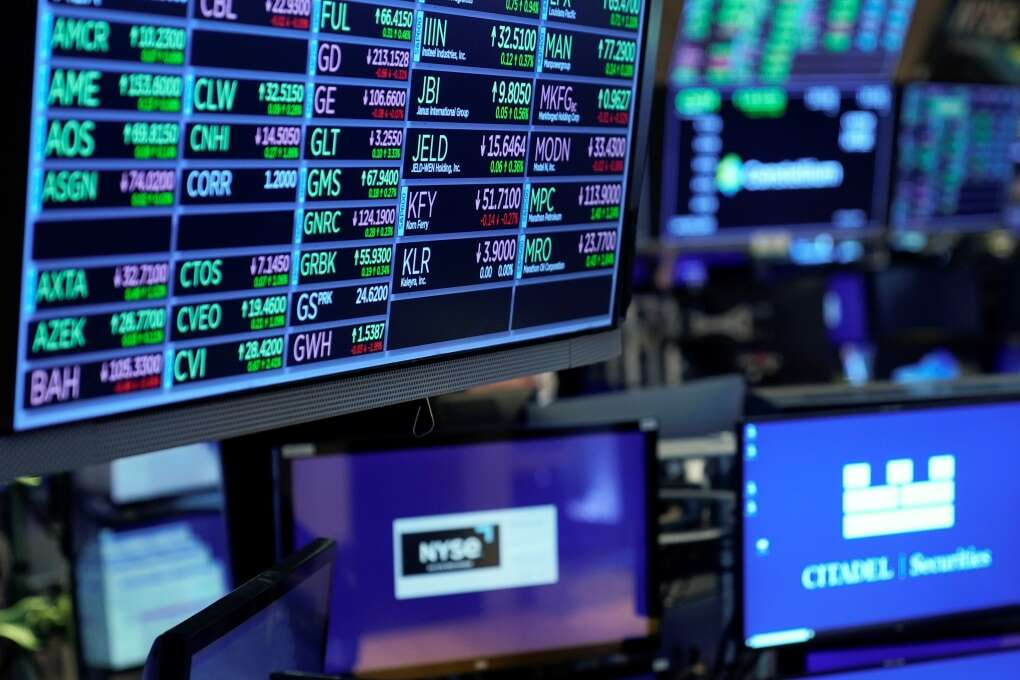The Dark Side of Easy Trading: How Stock Market Addiction Is Ravaging American Men
Meta Description: Explore the alarming rise of stock market addiction among American men, fueled by readily available trading apps and high-risk investments like options trading. Learn about the signs, consequences, and available treatment options. #StockMarketAddiction #TradingAddiction #FinancialAddiction #Men'sHealth #MentalHealth
The allure of quick riches, amplified by the ubiquitous nature of modern trading apps, has ensnared countless individuals in the sticky web of stock market addiction. This isn't your grandpa's slow, methodical investing; we're talking about a fast-paced, high-stakes game played on smartphones, often leading to devastating financial and emotional consequences. While investing wisely can build wealth, the line blurs dangerously when it transforms into a compulsive, addictive behavior, particularly among American men. This isn't just about losing money; it's about the erosion of mental well-being, fractured relationships, and the crippling weight of mounting debt. This in-depth exploration dives into the heart of this growing crisis, unveiling the insidious mechanisms of this modern addiction, its devastating impact, and paths toward recovery. We'll explore the role of readily accessible platforms, the thrill of high-risk investments, and the devastating psychological consequences, drawing on expert insights and real-life accounts to paint a vivid picture of this often-hidden struggle. Prepare to be shocked, informed, and empowered to understand this emerging public health concern affecting an increasing number of individuals and families. You’ll gain a deeper understanding of the subtle signs, effective intervention strategies, and the crucial importance of seeking professional help. This isn't just about finances; it's about lives. Let's dive in.
The Accessibility Factor: When Trading Becomes a Click Away
The ease of access to trading platforms is a significant contributing factor to this alarming trend. Apps like Robinhood have gamified investing, making it as simple as ordering takeout. This ease of access lowers the barrier to entry, luring individuals into the market without a thorough understanding of the inherent risks. Gone are the days of hefty brokerage fees and complex paperwork; now, anyone with a smartphone can participate, often without the necessary financial literacy or risk management skills. This accessibility, while seemingly beneficial on the surface, has ironically created a breeding ground for impulsive, reckless trading behaviors that quickly spiral out of control. This democratization of the stock market, while intending to level the playing field, has inadvertently created a slippery slope for many, particularly those predisposed to addictive behaviors. The constant updates, notifications, and real-time market data act as potent triggers, fueling the compulsive urge to check, trade, and— ultimately— chase losses.
Think of it like this: imagine a slot machine, but instead of cherries and bars, it's Tesla stock and meme stocks. The dopamine rush from a winning trade is incredibly powerful, reinforcing the addictive cycle. The potential for quick profits fuels an endless loop of trading, even as losses mount. This is where the line blurs between intelligent investing and outright gambling; the thrill of the gamble often overshadows rational decision-making.
The Allure of High-Risk Investments: The Options Trading Trap
The allure of high-risk, high-reward investments, especially options trading, significantly exacerbates the problem. Options contracts, with their inherent leverage, magnify both profits and losses exponentially. This amplifies the thrill, drawing in individuals seeking quick fortunes, often without comprehending the substantial risks involved. The potential for massive returns fuels the addictive behavior, creating a vicious cycle of chasing losses and engaging in increasingly reckless bets. Statistics reveal a staggering increase in options trading volume, indicating a disturbing trend toward high-stakes gambling disguised as investing. The speed and volatility of options trading, combined with the ease of access through mobile apps, create a potent cocktail for addiction. It's a recipe for disaster, as many individuals quickly find themselves overwhelmed by massive losses and the crushing weight of financial ruin.
One statistic that illustrates this point chillingly is the rise of same-day expiry options. More than half of all S&P 500 options transactions now involve these extremely short-term contracts, emphasizing the high-stakes, speculative nature of much current options trading. It's essentially financial Russian roulette.
The Psychological Fallout: The Hidden Scars of Trading Addiction
The psychological consequences of stock market addiction are often severe and far-reaching. The emotional rollercoaster of trading— the exhilaration of wins followed by the crushing despair of losses— takes a heavy toll on mental health. The constant anxiety, fear, and stress associated with market fluctuations can lead to depression, anxiety disorders, and even suicidal thoughts. Furthermore, the secrecy surrounding the addiction often isolates individuals from their support systems, compounding their emotional distress. Many individuals hide their losses from family and friends, creating a further sense of shame and isolation that exacerbates the problem. This hidden struggle often prevents those affected from seeking help in a timely manner. The financial strain, exacerbated by mounting debt, only intensifies the psychological burden, creating a vicious cycle of despair and desperation.
This is not simply a financial problem; it’s a mental health crisis demanding urgent attention and effective intervention strategies.
The Road to Recovery: Seeking Help and Finding Hope
For many struggling with stock market addiction, recovery is possible through professional help. Specialized therapists, financial counselors, and support groups provide crucial guidance and support throughout the recovery journey. Cognitive behavioral therapy (CBT) is often effective in addressing the underlying cognitive distortions and behavioral patterns that contribute to the addiction. The recovery process often involves several stages, including acknowledging the problem, seeking professional help, developing healthy coping mechanisms, and rebuilding financial stability. The support of family and friends is also crucial during this challenging period. Moreover, there are parallels between recovering from gambling addiction and recovering from stock market addiction. Many of the same therapeutic techniques and support structures can be adapted to address the specific issues faced by those struggling with trading addiction. This is where a multi-disciplinary approach, combining financial planning with psychological support, is critical in achieving long-term recovery.
Stock Market Addiction: A Growing Concern
The rising prevalence of stock market addiction is a serious public health concern. The ease of access to trading platforms, coupled with the allure of high-risk investments, is creating a perfect storm for addiction. The long-term effects on individuals, families, and society as a whole are substantial. This necessitates a multifaceted approach to address this growing issue, encompassing education, regulation, and increased access to mental health resources. Moreover, the financial industry needs to take responsibility, implementing measures to protect vulnerable individuals from the dangers of excessive trading. This requires a collaborative effort among policymakers, financial institutions, and mental health professionals to raise awareness, provide support, and ultimately prevent this insidious addiction from claiming more lives.
Frequently Asked Questions (FAQs)
Q1: What are the signs of stock market addiction?
A1: Signs include excessive trading, ignoring other responsibilities, chasing losses, lying about trading activity, experiencing withdrawal symptoms when unable to trade, and significant financial distress.
Q2: How is stock market addiction treated?
A2: Treatment often involves therapy (like CBT), financial counseling, and support groups. Removing access to trading platforms is also a critical step.
Q3: Is stock market addiction similar to gambling addiction?
A3: Yes, they share many similarities, including the thrill of risk-taking, the potential for substantial losses, and the development of compulsive behaviors.
Q4: Can I help someone struggling with stock market addiction?
A4: Yes, encourage them to seek professional help. Offer support and understanding, but avoid enabling their behavior. Consider joining a support group with them.
Q5: What role do trading apps play in stock market addiction?
A5: The ease of use and gamified nature of many apps lower the barrier to entry and can contribute to impulsive trading.
Q6: Are there any resources available for help?
A6: Yes, several organizations offer support for problem gamblers and those struggling with financial addiction. Search online for resources in your area.
Conclusion
The insidious nature of stock market addiction, particularly among American men, demands immediate attention. This isn't just a financial issue; it's a public health crisis with profound psychological and societal implications. By understanding the underlying mechanisms, recognizing the warning signs, and actively seeking help, we can fight back against this modern addiction and work towards a healthier, more financially secure future for all. The road to recovery is challenging, but with the right support and interventions, it is possible to reclaim lives and rebuild shattered futures. Let's face this challenge head-on and create a society where financial well-being is prioritized over the destructive allure of unchecked speculation.



